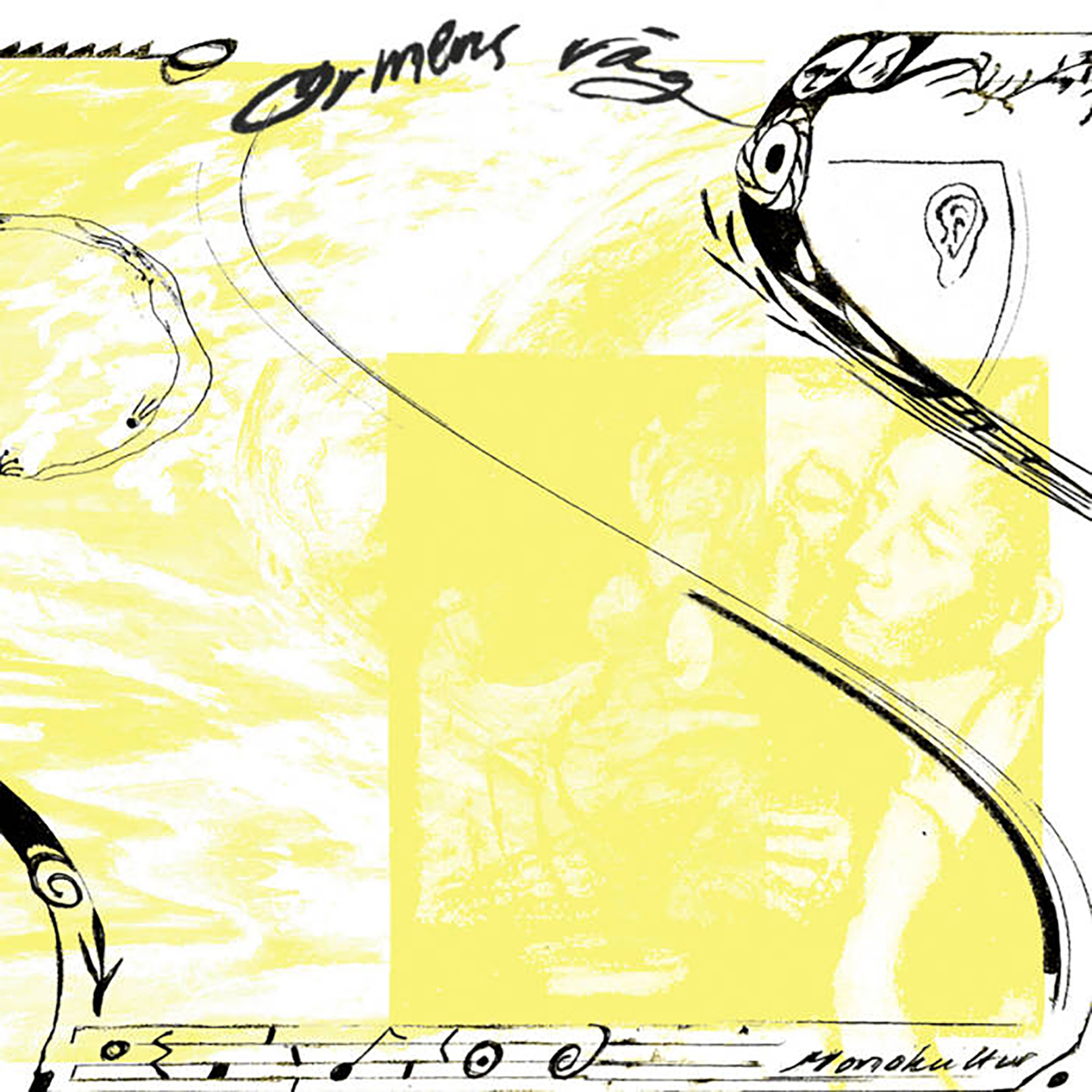
This is the second full-length from the Swedish minimal wave/post-punk duo of JJ Ulius (Skiftande Enheter) & Elin Engström (Skiftande Enheter/Loopsel). Significantly, Monokultur spawned from the same fertile milieu that brought us Neutral, Enhet För Fri Musik, Treasury of Puppies, and every other great Gothenberg project, so it is not particularly surprising that Monokultur are excellent as well. While I suspect that Enhet För Fri Musik will remain securely ensconced as my favorite emissaries from Sweden's thriving underground scene for the near future, Monokultur definitely craft some of the strongest singles of anyone in that scene. In fact, they almost resemble a variation of Neutral in which Sofie Herner and Dan Johansson suddenly realized they could celebrate hiss-soaked grayscale murk and write catchy, hook-filled songs at the same time. That is not meant to disparage Neutral (whom I also enjoy), but Monokultur definitely have less of a scorched earth approach to human warmth and lovely undestroyed melodies. In any case, this album is excellent, as Monokultur are getting very close to perfecting a vision in which gnarled post-industrial artiness, bedroom pop, and 4AD-style romanticism can seamlessly intertwine and enhance each other.
Ever/Never & Mammas Mysteriska Jukebox
The wobbly, bleary, and hypnagogic/somnambulant opener "Decennium" offers a fairly representative crash course in what to expect from Ormens Väg: hushed, intimate, and melancholy lo-fi pop songs that feel like they were recorded alone in a small apartment in a cold, bleak city at 3am in 1982. In fact, Monokultur capture urban alienation so exquisitely that it is legitimately surprising that they are a duo, as it is damn hard to imagine two people on such a dark wavelength ever connecting with one another. It is similarly surprising that Engstrom and Ulius are able to articulate their deep malaise in such a tenderly melodic and charmingly ramshackle way, sometimes approximating a promising minimal wave duo that discovered hard drugs, heartache, and Throbbing Gristle to disastrous impact on their commercial prospects.
To my ears, “Demokrati” is probably the piece that captures Monokultur at their best, as it combines a simple, lovely organ melody with a slowly, chugging rhythm and hushed male/female vocal harmonies, but there are several similarly successful pieces that veer off in divergent directions. For example, the Ulius-sung "För Sent" sounds like a rough late-period Joy Division demo for another "Atmosphere"-style hit, except Ian Curtis is uncharacteristically sleepy, distracted, and Swedish. The effect is weirdly charming, which is likely due to the quietly lovely backdrop of quivering, hallucinatory synth melodies, warped guitar shimmer, and a languorously sensual pulse. Elsewhere, "Pennan i handen" sounds like a ghostly DIY country song or a sleepily sexy, ennui-soaked inversion of The Cramps who were more inspired by brutalist architecture and Ingmar Bergman films than classic rockabilly and sleaze. My other favorite pieces are "Vårdagjämning" and "Människor och träd," which respectively enhance the Monokultur aesthetic with heavy, haunted-sounding industrial loops and a lovely spoken word performance from guest Charlott Malmenholt. The latter piece comes as a quite a surprise at the end of the album, as it feels almost upbeat and tropical (think "Cocteau Twins make an impressionist exotica album…but with poetry!"). The only real caveat with this album might be that it will probably be too gloomy for some, but I think Jack Rollo nailed Monokultur's appeal in his liner notes ("sudden moments of heart-wrenching familiarity"), as it seems like there is always an unexpected melody, poignant chord change, or cool twist just around the corner with this album.
Samples can be found here.
Read More

